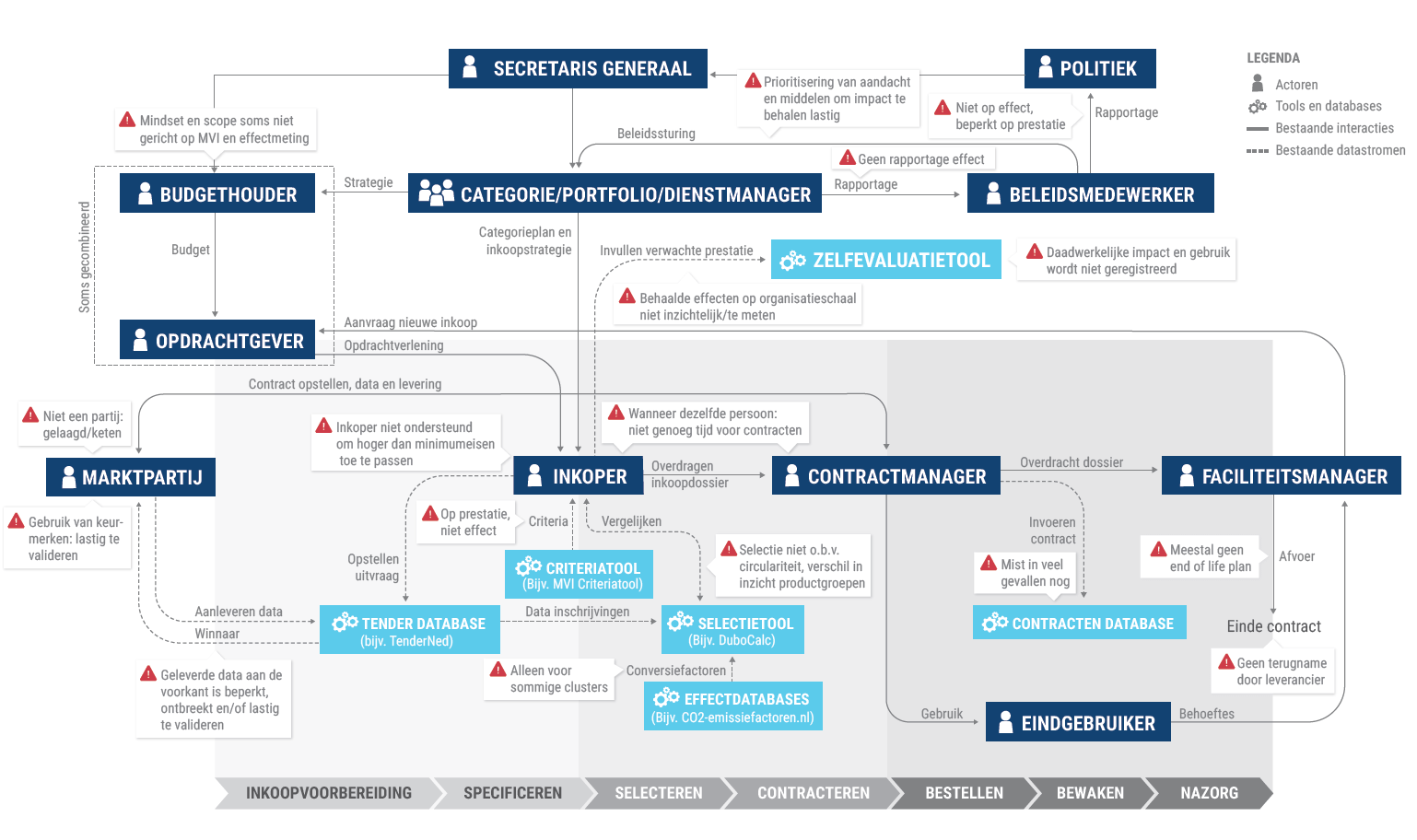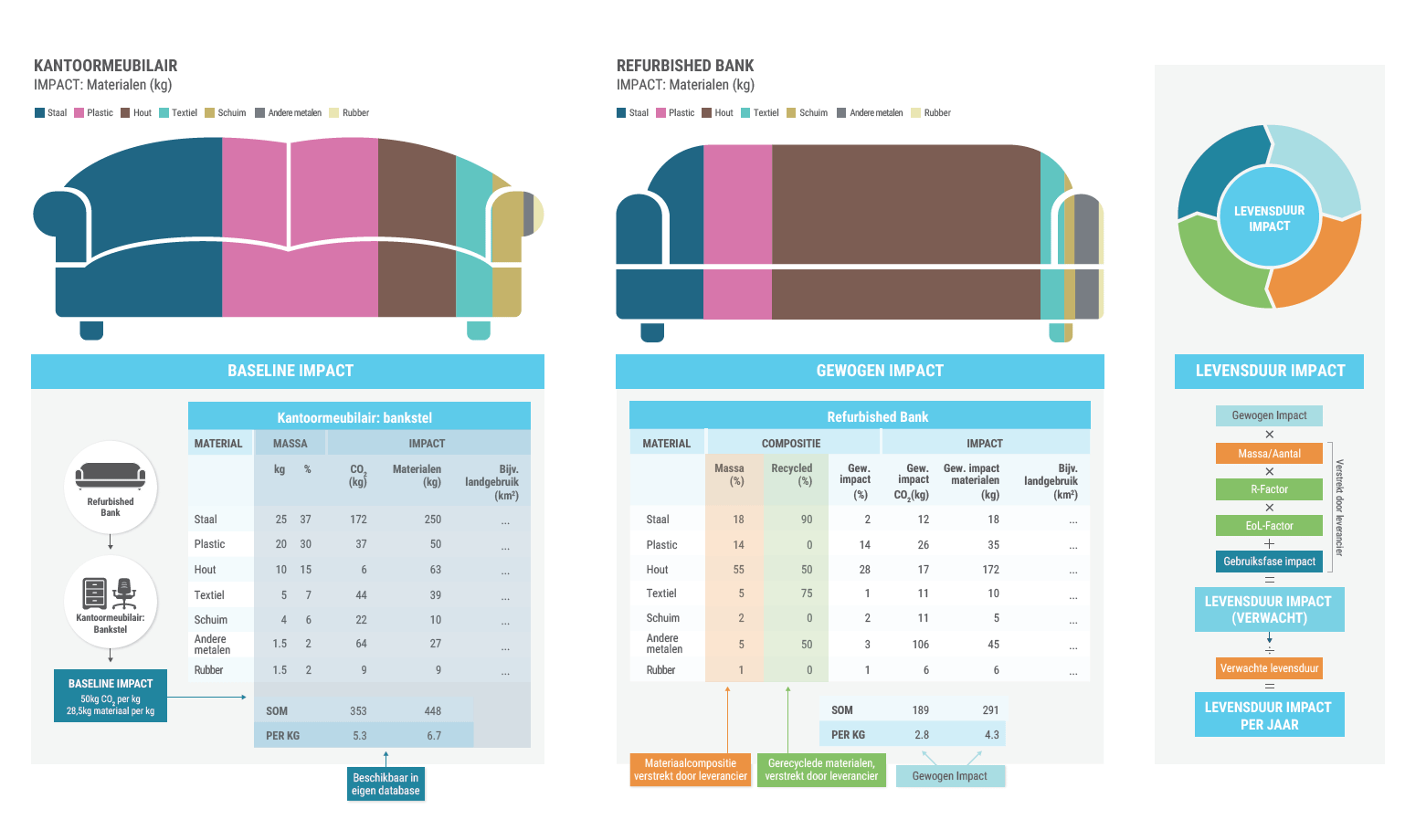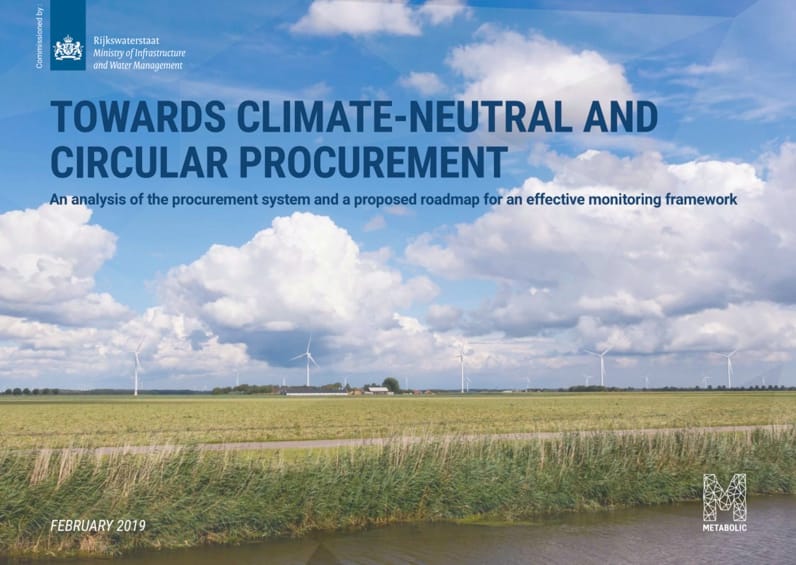Measuring climate-neutral and circular public procurement
Towards climate-neutral and circular procurement.
- Client: Rijkswaterstaat: Dutch Ministry of Infrastructure and Water Management
- Date: February 2019
The Netherlands has high policy ambitions to become 100% circular by 2050, and consume 50% less primary raw materials in 2030. In addition, CO2-impacts must be reduced by 95% in 2050, with a target of 49% reduction in 2030, and the Dutch government sees circular procurement as a means to achieve significant CO2 reductions. As such, the central question for this project was “How do we arrive at an integrated impact monitoring framework for climate-neutral and circular procurement?”
For this analysis, we mapped out various instruments to monitor Socially Responsible Procurement. We approached the study on three different levels: the level of a product group, the level of an organization and the level of national reporting. This illustrated where there are challenges and room for improvement. Subsequently, we developed a roadmap with actions that should be taken in the coming 5 years in order to arrive at a more uniform impact monitoring for climate-neutral and circular procurement.
The results of this study feed into the Learning Network for Effect Monitoring, which is aimed at sharing learnings in the field of effect monitoring more broadly. Implementation of the roadmap produced in the study will help the Dutch government develop a clear monitoring framework that helps public organizations compare purchase options and make sustainable purchasing decisions more easily.








Director of Sustainable Cities & Regions
ANY QUESTIONS?
For more information about this project, please get in touch.






